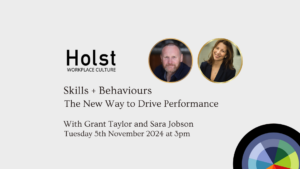You might celebrate the arrival of your new hire on day one. But, don’t count your chickens just yet, there’s a long way to go.

The success of a hiring decision depends on several factors, all of which involve a mix of judgement, timing and a dash of luck. Hopefully your decisions are largely made in that order.
- You have identified the job requirements to create a benchmark
- You have assessed and selected against that benchmark
- You have a bespoke onboarding plan which focuses on closing skills gaps between your new starter and the job requirements.
So, when can you exhale a sigh of relief and congratulate yourself on a job well done?
When your chosen candidate accepts your offer?
Sadly, not. You may have successfully completed stages, one and two above, but you still have the choppy waters of onboarding to navigate. Around 30% of new hires leave within the first six months, for reasons including inadequate guidance, insufficient training and a lack of support from coworkers and managers.
As employers struggle to find the right people, there’s always the temptation to hire anybody vaguely suitable and hope for the best. To feel lucky enough to get someone in through the door. And while it might work out, the reality is that it probably won’t. Getting a candidate to say yes to your job offer is not cause for celebration. It’s simply the very start of the process of retaining them.
Open the champagne at the end of probation?
Well again, unfortunately not. By all means, give yourself a good pat on the back for implementing a successful onboarding process. Your new hire is not one of the 30% mentioned above, so you, your team and your new hire have done a great job of reaching this point. There might have been some hiccups along the way, but tweaking their onboarding in response to feedback has yielded a good result thus far. You have demonstrated to your new hire that your organisation is a good place to be part of.
"Companies with a strong onboarding process improve new hire retention by 82%."
Glassdoor, 2015
But, why should they stay any longer? You could pay them more or increase their holiday allowance perhaps. However, the key to keeping good people is having other good people around them. Around half of UK workers said they would rather have great relationships at work rather than a 10% pay increase. Those of us who do enjoy great team relationships with our coworkers will vouch for that.
By focusing on developing strong team relationships, you make it really hard for your now firmly embedded, not-so-new hire to look elsewhere.
Onboarding complete, probation passed. Promotion ahead?
Finally, give yourself permission to celebrate! (Although this still comes with a caveat, more on that below). You have successfully recruited, brought onboard and inducted your new hire into your succession planning/retention strategy.
While promotion could be a move up the management ladder, it could also take the form of a sideways move into a different business area. Such moves widen skill sets, deepen industry knowledge and provide fresh challenges for their own development. They help to keep your talented people engaged, energised and embedded within your organisation.
This is recruitment success. And the caveat for your celebration?
- You have to start the process to onboard your ‘old hire’ into their new role
- You will need to recruit, develop and retain their replacement.
The merry-go-round of recruitment … it never ends!
Create positive workplace culture to improve talent retention
"A positive workplace culture improves teamwork, raises morale, increases productivity and efficiency, and enhances retention of the workforce."
Dr. Pragya Agarwal, Forbes 2018
Recruitment is more successful when it is done with a retention focused approach. The goal should not be to shoehorn an individual into your organisation. The goal should always be to retain them and grow their ability to contribute value for years to come.
We help organisations of every size and sector, from the start-up to the well-established, to create and optimise their talent retention strategies through positive workplace culture. Talk to our team of expert consultants and coaches to learn how we can do this for you.





